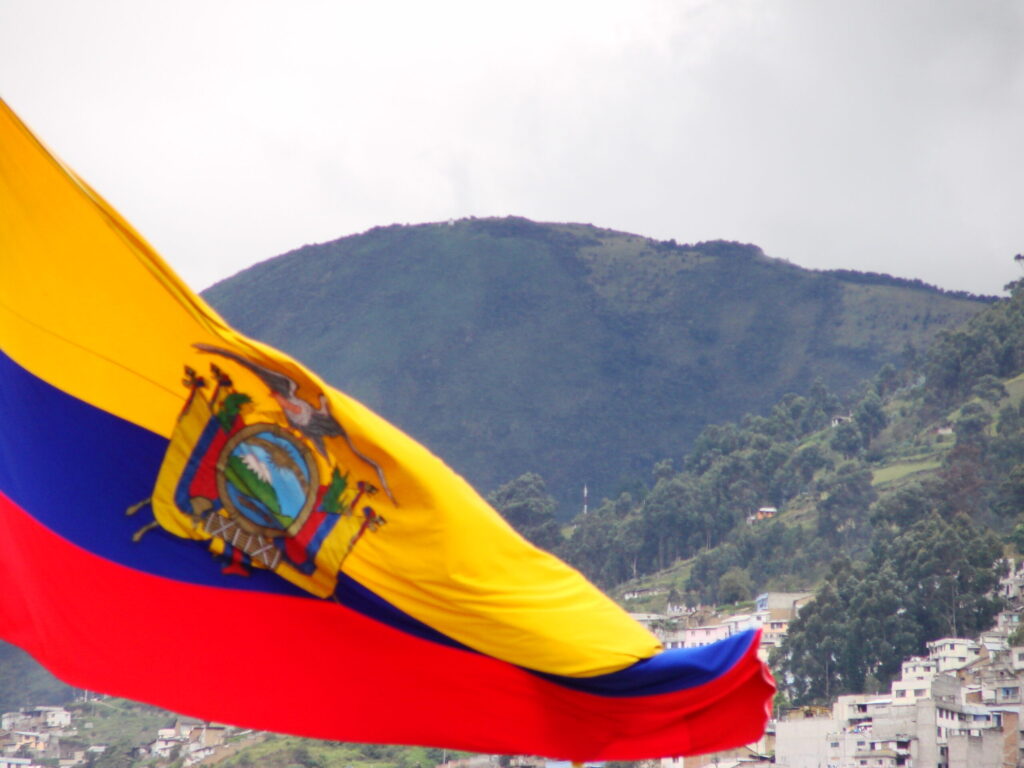Medellín, Colombia – A statistical tie in Sunday’s elections in Ecuador resulted in a run-off scheduled for April between incumbent President Daniel Noboa and former Nationwide Meeting member Luisa González.
Noboa, from the Nationwide Democratic Motion celebration, received 44.28% of the vote, while González of the Citizen Revolution Motion received 43.86%. The remaining 14 candidates obtained simply 10% of the vote, down from 30% within the earlier election, underscoring what some political analysts name a “polarization” of the voters.
No candidate crossed the 50% threshold of votes wanted to safe a victory. Nor did they garner over 40% of the vote whereas beating the following closest opponent by greater than 10%, forcing the run-off election that might be held on April 13.
The 2 politicians will face one another of their second run-off election, with Noboa having defeated González in October 2023 after the impeachment of then-President Guillermo Lasso compelled early elections that yr.
A comparatively unknown politician and inheritor to a household banana fortune, Noboa campaigned in 2023 on a troublesome on crime platform. Fifteen months into his time period, Noboa has been criticized for his incapability to maintain crime charges down, regardless of preliminary successes with the militarization of public safety.
González, a former cupboard member of left-wing President Rafael Correa, has additionally promised to extend army and police presence to fight violent crime, however differs in her emphasis on growing social spending to assault the basis causes of poverty and crime.
Violence associated to organized crime, vitality blackouts and financial inequality are points regarding Ecuador’s voters. Regardless of a drop beneath Noboa, Ecuador nonetheless has a murder price nine times higher than the worldwide common, and scheduled electricity blackouts blamed on droughts upset the populace. About 35% of the inhabitants lives in poverty.
Polls main as much as elections didn’t anticipate such a close race.
Fernando León, a professor from the Universidad Internacional de Ecuador, told El Universo, that such a political polarization is “a phenomenon that’s by no means been seen in Ecuador.” He attributes the tight election consequence to “the persevering with deterioration of the standard of lifetime of Ecuadorians by way of safety, job creation and entry to fundamental providers.”
The Nationwide Electoral Council (CNE) has organized a presidential debate on March 23, which is obligatory for each candidates.
Featured picture credit score: Yamil Salinas Martínez through Flikr, https://creativecommons.org/licenses/by-sa/2.0/
